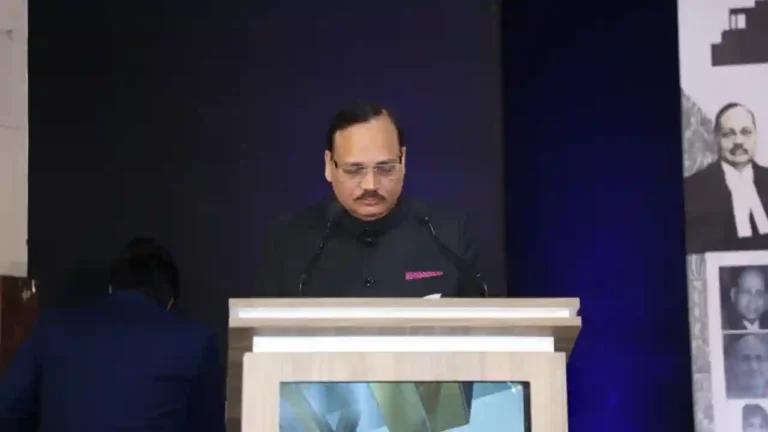Supreme Court Judge, Justice Surya Kant, recently emphasized the need for the judicial system to recognize and protect individuals who are indirectly affected by court decisions. Speaking at the 250th Friday Group Meeting organized by Supreme Court Advocates, he shed light on "Invisible Victims of the Legal System: The Need for Sensitivity & Compassionate Adjudication."
Justice Surya Kant stressed that a legal case impacts not just the petitioner and respondent but also many others connected to them. He urged judges and lawyers to be more conscious of those whose rights might be inadvertently affected by court rulings.
"When a case comes before us, it is also our duty to ensure that individuals likely to be impacted by the proceedings are taken care of."
Recognizing the socio-economic and cultural diversity of the country, he called for heightened sensitivity in legal matters. He pointed out that many people—such as victims of gender-based violence, undertrials, persons with disabilities, and migrant workers—often remain unseen in the legal process despite being deeply affected.
Read Also:- Supreme Court of Pakistan Strikes Down Gender Discriminatory Rule, Cites Indian SC Judgment
A Real-Life Case That Changed His Perspective
Sharing his experience as a young judge at the Punjab and Haryana High Court, Justice Surya Kant recounted a case involving four minor daughters, aged 2 to 11, who sued their father. The father, serving jail time for murdering their mother, attempted to deprive his daughters of their rightful inheritance by transferring land ownership to his father, who then sold it to third parties.
The maternal uncle, who was taking care of the girls, challenged this transaction in court. Eventually, the buyers of the land sought to be included in the lawsuit. Recalling how deeply the case affected him, Justice Surya Kant stated:
"Every night, that case would wake me up, making me question whether I had done enough to protect those girls. Had I allowed the third parties' application, an injustice might have occurred. Ultimately, the court registered an FIR in the matter, uncovering criminal intent. Those who had purchased the land, realizing the gravity of the case, ended up donating money for the girls' welfare."
He emphasized that such cases highlight the importance of considering individuals who may not be direct litigants but still suffer due to judicial outcomes.
"The judicial system must be equally sensitive towards those not present in the courtroom but are adversely affected by its decisions."
Read Also:- Supreme Court Acquits Man in 30-Year-Old Murder Case: Examining the Role of Prior Enmity in Criminal Trials
Justice Surya Kant concluded by stressing that legal adjudication should not be one-sided. Courts must actively ensure justice for marginalized sections of society who lack the resources to represent themselves.
"If underprivileged individuals are being deprived of justice, it is our duty to safeguard their rights. Adjudication should address all those entitled to justice, not just those with the means to pursue it."
At the same event, Justice PS Narasimha, the Guest of Honor, underscored the importance of legal discussions in fostering open-mindedness among lawyers. He praised the Friday Movement, stating that such discussions contribute to lifelong learning in the legal profession.
"We have not institutionalized continued legal education, but the Friday Movement has informally provided a platform for open discussions and idea-sharing."
Read Also:- Supreme Court Orders Probe Into Alleged Irregularities In Punjab Municipal Elections
He illustrated his point with a Chinese story about a Guru and his disciple. When the disciple claimed to have learned everything, the Guru poured tea into a cup until it overflowed. The disciple asked him to stop, to which the Guru replied that the mind, like the cup, can only absorb knowledge if it remains open and unfilled with preconceived notions.
Justice Narasimha also honored 13 speakers, including senior advocates who have significantly contributed to the Friday Group Lectures.
The Friday Group, founded by Supreme Court Advocate G. Seshagiri Rao, is an academic forum for Supreme Court advocates. Established in 2015 with just 15 members, the group now boasts over 1,000 lawyers. Every Friday, they conduct lectures on critical legal issues, which are also available online for continued legal education.
The Event can be viewed here















